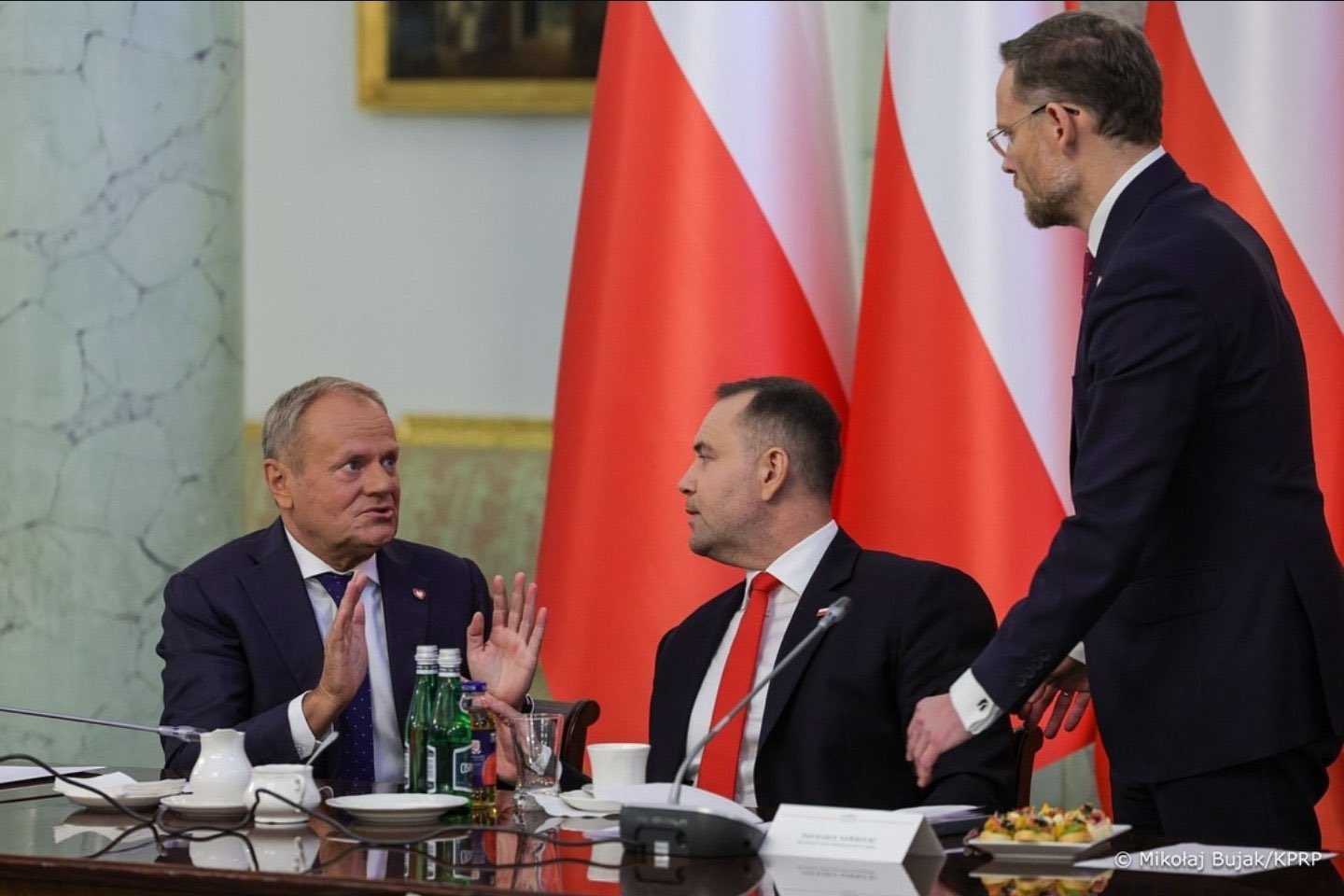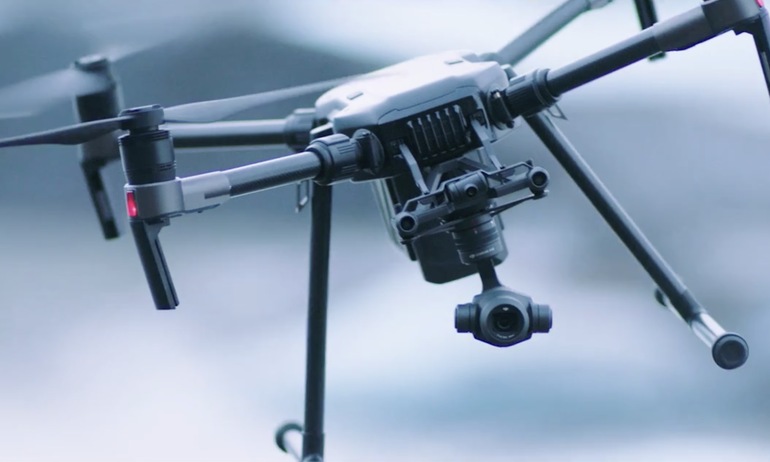"Socialism We Will Defend Like Independence"
General Wojciech Jaruzelski, 1981.
"The dream of an economical strategy better than capitalism has spread to dust. There is no 3rd way, no model between Stalinism and capitalism that functions. The only reasons for refraining from returning to capitalism are pragmatic and political”
Leszek Balcerowicz, 1987.
‘In KC there is now a new, young leadership class of technocrats – liberals. They are the most passionate supporters of capitalism in Poland. They are allies, not any obstacle or threat”
Jacek Kuron 1989.
In the decade of 1980, PRL entered debt in capitalist countries at $24.1 billion. In 1980, interest payments took 2.4 billion dollars and in terms of PLN 178.5 billion. prof. Jacek Tittenbrun In his book “The Fall of Real Socialism in Poland” which quotes this article, he commented on the importance of these figures: “National income generated in the full economy amounted to PLN 1936 billion in 1980, and in the socialised economy PLN 1,595 billion. The free, purely proprietary benefits taken up by abroad debt capitalists thus represented 9.2% of the first and 11.2% of the second total."
In a situation of tight debt, Western bankers and Western governments may have demanded that the opposition be tolerated in the form of a NRA, as Francisz Szlachcic characterized as follows: “Economic dependence has evolved politically. There were concerns that more drastic actions, and more drastic actions were courts, could have led to the cut off of taps with a flow of credit." However, what is said less, Western governments and bankers could then influence economical policy as a whole. The pressures at a gathering with bankers in April 1980 forced the government to rise meat and meat prices and transfer better species to alleged commercial stores, which was 1 of the direct causes of labour strikes first in July and then in August 1980.
The focus of the economy on debt repayment in conjunction with its centralist nature has created a number of unresolved problems. Bankers demanded increased exports, and this in practice aggravated the shortcomings in the interior marketplace and social protests. Another consequence of external imbalances was the regulation of imports: “From March 1981 onwards, imports for interior purposes were almost completely halted due to a deficiency of mottos, which led to downtimes in production resulting from supply shortages, the cessation of the production of many articles, a crucial decrease in the usage of generation capacity and the deepening of cooperation ties. (...) Between 1980 and 1981 the downtime resulting from the deficiency of imported components covered 40% of the country’s industrial potential.” Technological backwardness was besides noted: “In 1976, for example, sales of coal, another natural materials and food brought 71% of abroad exchange gross to highly developed countries. In 1977, products manufactured on the basis of licences purchased in the erstwhile 6 years accounted for only 4.5% of our exports. In 1980, the share of licensed (actual and expired) production represented 7% of the full value of industrial production." A sign of Poland's degradation to the position of a 3rd country of the planet was the situation in the clothing industry, where, as Prof. Tittenbrun noted, natural materials were being delivered and inexpensive Polish labour was anonymously producing goods sold on planet markets under a brand name. It was besides a mistake to channel a large part of the resources into the improvement of the dense industry, where a long period of construction and return of investments forced fresh credits to be drawn before export revenues arose.
In specified a situation, the introduction of martial law had not only a geopolitical dimension and possibly allowed to avoid intervention akin to that in Hungary in 1956 and Czechoslovakia in 1968 or prevented anarchy and civilian war, but from the position presented by Jack Tittenbrun was the action of local elites to pay off debt at the expense of the standard of surviving of society. It was so a classical postcolonial arrangement, only that with the addition of socialist economical dogmas, from which 1 could not walk distant for fear of Moscow's intervention and opposition to the apparatus of power, for which it would be equivalent to the collapse of the perfect base of the full system, which had legitimized that power. With the presidency taken by Ronald Reagan The political origin began to prevail, and sanctions were imposed on a debtor who had debt problems as a consequence to martial law. Their effects were estimated at $15 billion. At the same time, interest rates on fresh loans increased.
As Tittenbrun concludes: “It seems that the western creditors acted against their own interests. In fact, however, it was different; the postponement, but not the cancellation, of the repayment of debts only increased the interest to be paid under the law. It should be recalled that while, following the introduction of the martial law, negotiations with the Paris Club, which is composed of 15 creditor states on the postponement of debts for 1982 and the granting of fresh loans to Poland, Poland suspended the repayment of government claims and guaranteed by the Western governments, private banks did not break up the same talks as a consequence of which 92% of the full debt was agreed to be repaid to them in 1982 – 1984, however, providing for the day-to-day payment of interest on deferred sums."
Under the protection of martial law, the government introduced draconian increases in the prices of basic articles by over 200%, which meant a decrease in real income of the population by more than 25%. However, this did not solve any of the problems, as the devoid of fresh credits the economy could not satisfy the supply, inflation was respective percent to scope 64% by the end of the decade. At the same time, bi-currency has progressed in many crucial areas of life. The prices of housing in the free marketplace were measured in thousands of dollars and were on the 1 hand unattainable to the country's earners of respective twelve dollars and inadequately inexpensive for those who worked respective months in the West.
Perestroika on the horizon
In a situation of chaos and the actual bankruptcy of the Polish People's Republic there have been major geopolitical changes. The most crucial thing was to get to power. Mikhail Gorbachev, who declared on the 1 hand the request to improvement the strategy within the USSR, on the another hand a departure from Brezhniev's doctrine and a free hand in solving their problems to individual states of the block. Before General Jaruzelski visited David Rockefeller In September 1985, he first met in Moscow with Gorbachev, where he seemingly obtained approval for bolder moves.
What is worth noting in the fresh York gathering besides attended Zbigniew Brzeziński and Undersecretary of State Lawrence Eagleburgerwhich gave the talks a broader political character. The fact that there was a breakthrough is evidenced by the following year's acceptance of the global Monetary Fund (IMF) membership, which the Polish People's Republic has been seeking since 1980. Prof. Tittenbrun commented on as follows: “it will become a associate of the crown institution of global financial capital. (...) This is not an entirely adequate term, more on the spot, given the economical and property situation of Poland, the word "subjected" to this kind of planet mafia government, led by money. The following year, Western sanctions were abolished.
In the grip of debt
In 1986, he started the alleged first abroad Debt Fund, drawing immense amounts of debt straight from companies as a percent of the value of fixed assets. This was another component of expanding chaos, but besides a tendency to favour the private sector, which did not pay specified a tribute. A akin function was played by the alleged State employment Activation Fund (PFAZ) to prevent wage increases. However, as Tittenbrun points out, crew pressures have led to: "In 1985, 7 million employees were excluded from the general PFAZ burden rules compared to 2.7 million in the erstwhile year".
The following year, therefore, another bureaucratic instrument was introduced; a taxation on Over-normative Remunerations (PPW) called a Base. In the following years, its increasingly strict variants were introduced, but price and wage spirals could not be controlled. The economical disaster, the force of creditors, and the deficiency of ideological and political pressure, or alternatively the encouragement to make increasingly bold and independent reforms from Moscow led the ruling fresh class to conclude that it was time to share power and responsibility. The alleged belt tightening imposed by the IMF and the bankers were now to be introduced under the cover of Solidarity, which inactive demanded the other in 1988 during the strike wave. The price for changing positions and supporting draconian reforms was expected to be a part of power, but its real foundations adequate for the fresh government were built elsewhere than the leaders of the opposition, and most of all the Polish society.
In parallel to geopolitical and macroeconomic changes, another processes continued, which led to a large part of the nomenclature and the ruling class starting to see their interest in changing the strategy to 1 in which the owners of capital and means of production were to take place, and this meant something far more tempting than a villa, a cottage, a car and a secretary, as was the case in the Game Age.
The nomenclature officially included around 30,000 key jobs for the state and the economy, but the organization advice required almost 10 times more. In February 1989, the Rakowski government passed a bill on the basis of which it became possible to conduct business based on state assets. Six months later, around 3,000 companies were operating, including 75% of the 1,700 largest socialised enterprises. Of the 51 controlled by NIK, only 1 proved to be socially useful. Their shareholders were mostly directors, secretaries of organization organizations, members of administration and their families. They took over those parts of the business and property of the home establishment, which provided the largest income. Their function was frequently to become an additional intermediary. As a typical example, Jacek Tittenbrun cites the Szczecin company "Aprus", "which included 5 presidents of cooperatives and 8 directors of state-owned enterprises. The company was packing potato flour. This flour was taken from an establishment whose manager was a associate of the company and was handed over to the local PHS wholesaler by ordering it to 1 kg packages. On each package the company earned PLN 900.”
In addition to brokering, there was a priceless acquisition of assets in large bets. ‘The company ‘Arkady’ was established on the basis of the mine in Bełchatów, among the shareholders, including the wife and boy of the manager of KWB Bełchatów’s investment and the main specialist in the discovery of Szczerków from the parent company bought the production at prices that were in force during the purchase, i.e. respective years ago (...) In total, the company paid the mine PLN 21 million for the production measures taken over, with a tender price of hundreds of millions." The companies besides received loans from their parent companies for which they took over the most attractive machines, sales outlets. There was besides the mass usage of equipment and machinery belonging to state-owned companies. At the beginning of 1990, according to the control authorities concerned, the executive seats in the companies were occupied by 705 heads of state enterprises, 304 managers and chief accountants, 500 presidents of cooperatives, 80 activists and officers of political parties and organizations, 57 presidents and city heads, 9 governors or their deputies.”
Nomenclature metamorphosis
A good example of the transformation of political activists into capitalists and their accumulation of primary capital was, for example, the company "Agrotechnika", whose main shareholder was the National Board of the Association of agrarian Youth (ZMW). "In 1986 the company achieved a profit of PLN 688 million, with the sum of paid salaries of PLN 644.3 million. Their main beneficiaries were 123 CEOs, directors, attorneys, among whom were members of the National Management Board of ZMW, erstwhile directors and chief accountants, owners of private art establishments, erstwhile worker of the economical department of KC PZPR, erstwhile advisor to NIK, erstwhile worker of the RM Planning Commission, etc.’ There were besides a number of companies set up by government officials dealing with activities belonging to the formal duties of that administration. Another form of primary accumulation for police officers and the taxation administration was the extortion of artisans of laborers and tributes in nature in exchange for depreciation or remission of claims to the State Treasury. any of these crimes were even detected and cases were referred to the courts, but Jacek Tittenbrun, in this context, draws attention to the “classical – state sense of justice demonstrated by the courts. Just as it was completely different – after the martial law was introduced, workers, or leaders and intellectuals of “Solidarity” (not to mention erstwhile promoters).
The same is actual of those caught in the social robbery of directors, presidents, and secretaries. Shops and attractive plots were besides owned, which, thanks to changes in land usage plans from green land to construction. A separate way of property was the alleged Polish companies. The processes described above prepared the ground under the authority apparatus to change the economical and political system. Meanwhile, 1 of the main demands of the strike between 1988 and 1989, in addition to compensating losses caused by expanding inflation, was the liquidation of the activities of the nomenclature companies. For example, "In Gdańsk Shiprepair Yard, the "Solidarity" plant committee demanded that companies and cooperatives resign completely. In the Marchlewski Cotton Industries Department in Łódź, it was demanded that “private entrepreneurs do not supply services in the plant. (...) The request for miners to strike in 1989 in the mine "Morcinek", 300 1000 increases was due to the fact that any mining walls had been put into action. The dierent walls were distinguished by the best geological conditions to accomplish monthly earnings of up to half a million zlotys, while another miners earned up to 150 1000 zlotys." akin demands appeared in many another strikers. On the another hand, the new, until late red, bourgeoisie was rapidly taking on circumstantial large-state manners and accepting adequate rhetoric.
Here is simply a characteristic of the message of the chief executive of the “Sikorski” plant on the subject of this purely labour-based strike: “He was in pain over the existence of division and “a strong antagonism” among the crew “on workers and workers”, that among the erstwhile “there is no sense that not only people at the machines work for the good of the plant.” His career began to be an adjective: "Proclaimed". Crews across Poland besides protested against the expanding pay gap between management and workers, and there was besides a class of production officers who “do nothing, just spy, study and take money for it, due to the fact that for them there are money, bonuses, awards on various occasions. They treat workers from above, in your language.” The authorities managed to cope with the protests utilizing the policy of division and regulation with average successes, for example “the Huta workers. Lenin demanded wage increases not only for themselves but besides for the 2 most underpaid social states: wellness professionals and teachers." At the time, a completely different temper prevailed among opposition elites created as a consequence of a selection made by the minister Czesław Kiszczak. Adam Michnik In June 1989, GW wrote: "If the people of the nomenclature enter public limited companies, if they become 1 of the owners, then they will be curious to defend these public associations and the public limited-liability strategy destroys the Stalinist order".
Tomasz Kozłowski“ Many leaders of the solidarity camp were convinced that violent interference would harm the economy, ” said a researcher. Paradoxically, they accepted the same position that technocrats who advocated marketplace solutions presented in the erstwhile communist government. They were convinced that in a dynamic process – to any degree uncontrolled – the transformation of the economy, the emergence of pathology is inevitable." On the another hand, Prime Minister Mieczysław Rakowski resented Polish workers whose power liberated them from the “pasting of cows” and “In his conversation with a delegation of American politicians he complained about the ingratitude of the Polish society: “People who have previously criticized the government for their inept management and called for a transition to the marketplace mechanics are now loudly protesting against the sale of state property, tolerating the wealth of few. Hence, among others, the opposition against fast privatisation, which in time should cover about half of state-owned enterprises." The opinions quoted by the same investigator are even more curiosive: "The manufacture minister Tadeusz Syryjczyk admitted that specified a phenomenon exists, but explained that the situation must be explained by the invisible hand of the market: "We cannot prohibit, interfere, license"".
Could real socialism be saved?
Trying to answer that question, J. Tittenbrun rightly stated: “But if, on any magic principle, the debts had disappeared overnight, it would only bring a temporary relief, and after a short period of time all structural economical problems would have spoken again (they would not have been overcome by the burden of arms effort). Financial dependency was only 1 aspect of the wider systemic dependency and the secondary of "real socialism". This is besides confirmed by processes in another countries of the erstwhile east bloc. Hungary and Yugoslavia besides fell into the debt loop and dependence on the IMF in 1980, and another countries with Russia in the lead did not defend themselves against pathological sides of transformation. Could Poland, contrary to the organization assistant quoted at the outset, effort the 3rd way, the three-sector economy, which was advocated, for example, by almost all political forces during planet War II? possibly so, but it was then that the deficiency of intellectual and state-genuine elites, which would combine broad horizons, advanced morale with the will and ability of political action in the Polish national interest, emerged.
Unlike 1918, we did not even effort to usage the historical minute in 1989, but with disarming naivety we gave up our independency by relying on the goodwill of the fresh Hegemon and a convenient explanation of the end of history. As with the contact of the magic wand, all of our national vices and geopolitical superstitions have returned, the same ones that have led to national disasters in the past. They were taken over by people from the alleged social promotion, educated at the Polish-Polish universities, which was another giggle of history, which she said goodbye to a historical experimentation called PRL.
Olaf Swolkień
Think Poland, No. 9-10 (2-9.03.2025)


















